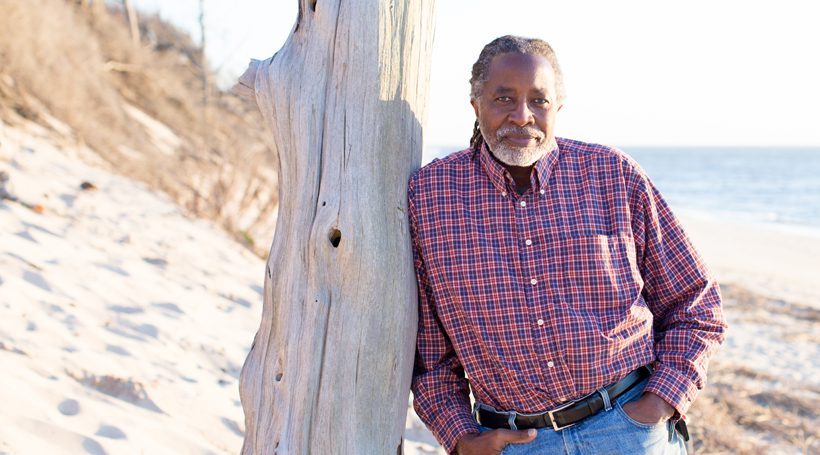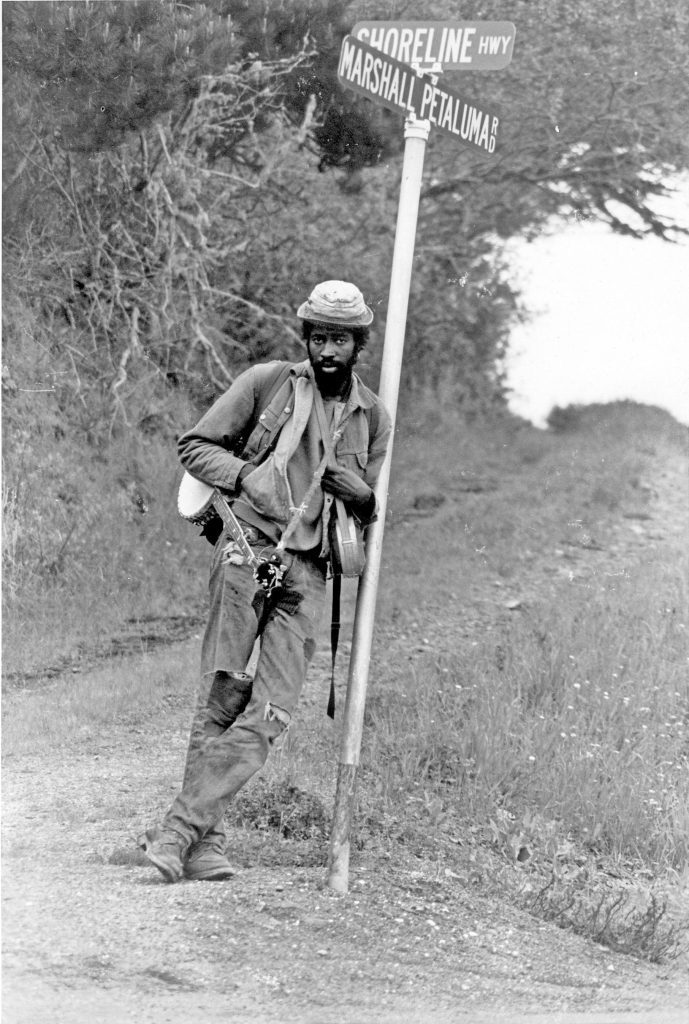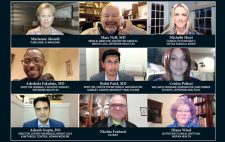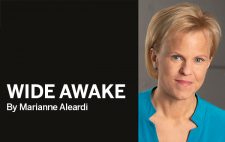Photo: Gabriella Urda
“Thank you for being here.” When John Francis opened his mouth to speak for the first time in 17 years, he was in Washington, D.C. on the 20th anniversary of Earth Day. It was 1990. The spoken words rang so foreign to his ears, he almost didn’t realize they were coming from his own mouth.
In 1971, Francis witnessed a tanker collision that caused an oil spill in the San Francisco Bay. Although he was not particularly environmentally conscious at the time, the image struck him so deeply that he gave up using motorized vehicles altogether – a commitment that lasted 22 years. He also gave up speaking. Silently, he walked across the United States and South America. Along the way, he earned 3 degrees, including a doctorate in land resources. For money, Francis sold paintings, wrote articles, played the banjo and relied on the generosity of others when nothing else worked. He raised awareness for environmental issues as a goodwill ambassador to the United Nations and the world’s GrassROOTS Community Foundation, and he earned the nickname “The Planetwalker.” Now, the 74-year-old finds himself back in West Cape May, where he spent summers as a kid. He serves as a West Cape May Commissioner and advocates for environmental protection on a local, national and worldwide scale.
Q: Why did you stop talking?
When I stopped using vehicles, I argued with people all the time. They said my walking wasn’t enough to reverse pollution or stop oil spills. But when I started doing this, I assumed other people would join me. I thought we’d make change together, but people just thought I was crazy. So I argued all day and didn’t get anywhere. I got tired of it. I could see that I didn’t have an answer as to why my actions, my one drop in the bucket, could be enough. On my 27th birthday, I stopped talking for 1 day to try to figure that out.
Q: How did 1 day turn into 17 years?
When I stopped talking, I realized that I had spent so much time telling people I was right that I stopped listening. I spent the entire time someone else spoke just figuring out what I would say next. So, I just listened. That doesn’t mean I agreed with or accepted everything they said, but I was able to learn from them. I learned so much that I wanted to keep it going for a few more days. Then a week. Then a couple of months went by. Then 17 years.
Q: How did you communicate?
I painted every day. When people came up to me, they could see my paintings and know what I had done that day, where I had been, what the weather had been like. People talk about the weather quite a bit. I played the banjo and communicated with people through music. After about a year, I started writing in a journal. Plus, I had my own form of sign language. We interpret ideas differently in silence – in a better way, I think.
When teaching classes while earning my masters, I mimed gestures to students, and they’d interpret what I was saying. They were engaged and they thought critically because they couldn’t zone out. Sometimes, their interpretation wasn’t at all what I was trying to say, but it’s what I should have been saying. Education is a 2-way street.
Q: What was it like walking long distances?
I started walking just around my town, so I was never far from home. But sometimes I would go off and camp on the beach for a day or 2 and walk back home. I would walk 20 miles to get to the big town, and I’d meet people along the way who invited me to stop and have dinner. After a while, I knew so many people on that path. Sometimes I’d stay with the people I met. Sometimes I’d find a place to camp. I usually carried a backpack with a sleeping bag and a tent if it was going to rain. I got good at it – finding a spot to set up a tent, sleeping under a bridge. I was homeless, although I never really thought of myself that way. I lived like this for the 7 years and 1 day it took me to walk across the United States.
Q: What did you learn about people on your walks?
I’d pass through state borders, town borders, and see everything in a new light from the people who were there. Often, the Chamber of Commerce would put me up in a hotel for the night and the people would invite me to their homes or buy me dinner at a local restaurant. But when they found out where I was headed next, they’d say, “Oh, be careful. That town doesn’t have a good reputation. You need to watch out.” But then I’d go to the next town, and not only would they be just as warm and welcoming as the town before, they’d say the exact same thing – “Oh, you came from there? Were you careful? They don’t have a good reputation.” What I found is that people just like to be listened to and respected, and we do that so rarely that we come out with the wrong opinion of people because we never gave them a chance.
Q: Did you ever consider giving up on the journey?
Yes, a lot of times. One day I had been cold and wet and hungry coming out of the Redwoods, and I told myself I was going to get in the next car or truck or bus or anything that came by. I saw a truck parked up on a hill. Just as I got there, I could hear the gears turning, the engine running, and it just drove off. I was left standing there. So I kept walking, and the next thing I knew, the rain stopped, I got some food and I was warm in my sleeping bag. That’s the way it went. It got bad, but it always got better eventually. I’m not going to say it was always amazing. Was my life ever threatened? Yes, of course. Was it dangerous? Many times. There’s risk involved when you’re exposing yourself that much, but it always turned out ok.
Q: What would you say to people who think they can’t make a difference?
Even if it’s just making a difference in your own life, that’s where you start to make a difference in the lives of others, or an entire town, or an entire society, or the world. Things happen that show you that you’re on a journey, that you’re a part of something bigger than yourself. It’s not because you’re courageous or brave or better than anyone else, it’s just your willingness to be part of something.
Q: What places have stuck with you?
I walked to Cape May! I grew up coming here every summer. I’ve been all over the world. I’ve seen beautiful places, wonderful beaches, incredible people, and this is where I ended up. This is home, and I sit every morning and feel so grateful that I walked across the entire United States, I walked the length of South America, and I still came back to West Cape May, New Jersey.















